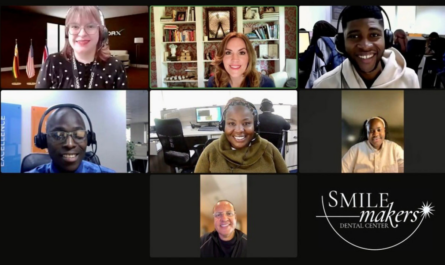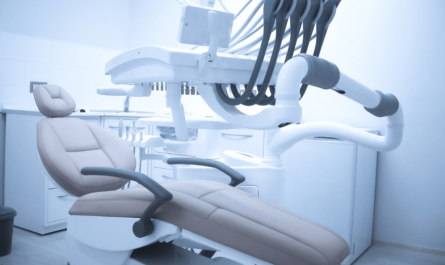Through data dental groups may discover untapped dentistry within the four walls of their practices.
By John Stamper, Founder, JRS4 Media/Dentalcast Productions
Data is the unbiased, truth-telling source of information that business owners should be tapping into to improve and streamline their processes. Whether you are in the middle of building a business from the ground up or you are looking for a way to breathe fresh life into your current operation, data is the key to better business operations.
As a dental entrepreneur, I have been harnessing the power of data for years to improve dental practices and patient care across the board. Evaluating our systems for weaknesses in the daily operations is an incredibly powerful way to encourage growth and prosperity for a business in any industry, but especially vital in the dental industry.
But are dental practices actually paying attention to the data?
Recently, I launched a number of companies back in 2019, one of which is a dental media company. I go to trade shows and interview dental people, asking about their stories. Stories fascinate me and I believe that everything threads together, but the one thing that kept coming back in my dental career is the topic of unscheduled treatment.
My dental journey
My dental journey is a little unconventional compared to the majority of the industry. I am a dental entrepreneur, but not in the traditional sense – I’m not a dentist. I don’t own dental practices, but I’ve been in the industry for about 18 years. The entrepreneurial bug bit me about seven years ago.
I started in dentistry in 2004 with a company called Brasseler USA, a medical equipment manufacturer. After eight years with Brasseler, I had the opportunity to partner with Dr. Wayne Mortenson and his company, Mortenson Family Dental. At that time, they had grown to about 70 practices rather quickly, but that had leveled off. Dr. Mortenson was concerned and wanted to find a way to keep growing.
There was no official position available for me, but they asked if I could visit five of their practices over the next 30 days to see if there was an opportunity where my services could help them. With my background in sales, the only thing I knew was to look for opportunities.
I stumbled across a little report in Opendental for unscheduled treatment. I pulled it out and started to look at the numbers and was astonished by what I found – case after case of unscheduled treatments, amounting to thousands of dollars in missed revenue by these practices.
I started to have conversations with the office managers and the providers, going patient by patient. I would have conversations along these lines: “Susie has $1,200 worth of work that needs to be done; when was the last time you spoke with her. Six months ago?” I started seeing a pattern of conversations in the practices obsessing over new patients.
Mortensen Family Dental hired me, and my responsibility was to go around to all 70 practices and work with those offices on helping them find ways to get those patients in and get those treatments done.
Establishing valuable systems with data
In the dental industry, we are fortunate to be able to be reactive in the way that we work. What I mean by that is patients come to the dentist for pain relief, which means that you don’t have to be super proactive in finding new patients. As I looked at those unscheduled treatments in Opendental, I realized that there was already so much untapped dentistry within the four walls of so many practices.
That doesn’t mean that we won’t work with new patients, but why not serve the unscheduled treatments we already have in our systems? I became the unscheduled treatment guy, but I also focused on helping these practices build systems using data as our navigator.
What I started to realize when I was talking to these practices was the data, for many of them, just didn’t matter. What really mattered was getting the dentistry done every day and taking care of their patients. I had to find a way to get these dentists to appreciate the value and potential looking at the data.
Dr. William Engilman built the custom KPI reporting system while I was at Mortenson. I worked with him to identify the KPI metrics that at the time we thought were the most important for the business.
One of the systems that did eventually catch on was PSLM, which stands for people, supplies, lab, and maintenance. This system was designed to manage each of those critical components in a dental practice, and it worked! Over time, the organization started to appreciate the data and the systems. It just took a lot of coaching, and it was a huge learning experience for everyone involved.
The reality is that you will never be able to tackle unscheduled treatment all at once in your practices. It has to happen in little bite-sized pieces, and I think it requires a different approach. Are we going to look at unscheduled treatment from the lens of what it is?
Dentistry is expensive and patients are always going to have financial issues. If they had money or if insurance covered it, they would get the treatment done. It’s also important to think about what would happen if, for the next 60 days, your practice had no new patients. What would happen if the marketing dollars you spent to get new patients was put towards your unscheduled treatment patients?
We need to realize that there is already so much dentistry within the four walls of our practices. How can we shift our focus to reach them?
John Stamper has over 25 years of leadership, business, people development and entrepreneurial experience. He thrives on motivating people how to build the bridges that will take them from the “here and now” to “a successful tomorrow.” From his early days as a submariner in the U.S. Navy, John has been fascinated with human achievement and the desire we all have to be a part of something great. He believes that joy, in its purest form, is discovered when we mix our passion to succeed at something with commitment and sacrifice.






